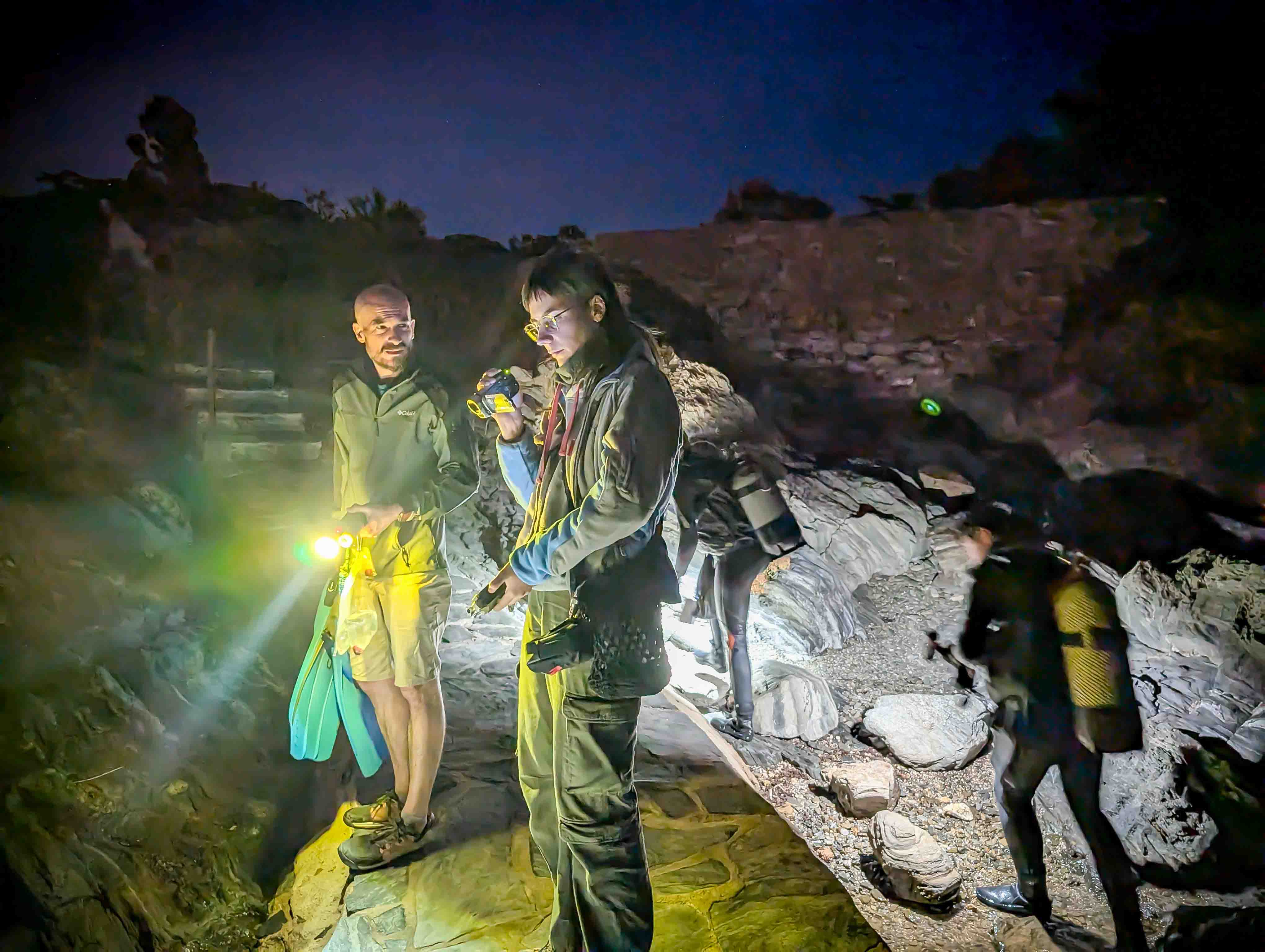LIPSea-M is born, an art-science initiative to create an expanded film about the climate crisis
LIPSea-M is born, an art-science initiative to create an expanded film about the climate crisis

With LIPSea-M, the CINEMA research group at Pompeu Fabra University (UPF) and the Institute of Evolutionary Biology (IBE), a joint center of the CSIC and UPF, are teaming up to explore the visual motifs of global change in marine ecosystems through an art-science experimental work methodology.
The multidisciplinary team aims to search for, record, and archive these images and develop an expanded film project, informed by citizen participation and knowledge transfer, that will foster social awareness about the effects of the climate crisis on the Mediterranean Sea.
The dialogue between research staff and filmmakers will start with the team of Javier del Campo, principal investigator at IBE. Following the research of the Microbial Ecology and Evolution Laboratory on the tropicalization of the Catalan Mediterranean and its influence on coral holobionts, the sample collection and scientific campaign in the Cap de Creus Natural Park (Girona) will be cinematically documented.
"With the LIPSea-M project, we have the opportunity to start a conversation with the public about the essential elements that sustain life in Mediterranean ecosystems in the face of the climate crisis", says del Campo. "We will focus especially on how tropicalization — the arrival of species native to warmer seas — affects corals and their symbionts. They must be understood as holobionts, that is, as a unit made up of the host and its microorganisms that work together to survive and maintain the health of the seabed".
Santiago Fillol, associate professor and member of the Collective for Aesthetic Research of Audiovisual Media (CINEMA) at UPF and screenwriter of the film Sirat - which will represent Spain at the 2026 Oscars -, explains the origins of the Potential Imaging Laboratory which promotes the LIPSea-M project.
"We drew inspiration from laboratories like Bruno Latour's to develop a scientific-artistic practice that makes research on the Mediterranean's environmental crisis emotionally experiential. Collaborating with the IBE team and using film as a tool, we seek to generate an emotional response from citizens to the tropicalization of our sea and the loss of its coral holobiont".
Coral holobiont. Credit: Bradley Wailer.
The LIPSea-M is a new meeting space for researchers, filmmakers, cultural institutions and citizens where the aim is to ensure that research on the tropicalization of the Mediterranean can be experienced through emotion.
“We want to provide a sensitive understanding of how symbiosis between species occurs, how marine organisms cope with rising sea temperatures, the role of invasive species, and much more,” says Ariadna Cordal, a predoctoral researcher at UPF's CINEMA, filmmaker, and audiovisual editor.
Image of the mediterranean microorganism Mediocremonas mediterraneus. Credit: Javier del Campo.
The project has received funding from the Carasso Foundation's "Composing Knowledge to Imagine and Build Sustainable Futures" call, which promotes collaborative processes between artists and researchers to address eco-social challenges in creative and experimental ways. Among the 153 initiatives submitted, LIPSea-M was one of the nine selected. The collaborative work team is made up of filmmakers, researchers, artists, and science communicators, as well as staff promoting cross-cutting knowledge transfer projects.
The creative process is expected to include transfer activities, such as transdisciplinary biology-film workshops and aesthetic and somatic explorations of coral holobionts. The funding requested from Carasso covers the mediation, communication, and knowledge transfer activities that will comprise this expanded film.
“The challenge is to find new ways to communicate the ecological emergency before it's too late. The artistic practices and mediation actions we propose must allow everyone to approach this research not only through data, but also through shared experience, by recognizing ourselves as part of this endangered ecosystem”, adds Anna Mundet, a predoctoral researcher at UPF, environmental activist and artist.
“At the IBE, we are excited by the idea of starting a dialogue between art and science that opens an emotional gap with citizens, challenges them and involves them in a sensitive yet rigorous conversation about the future of the Mediterranean in the face of the global climate challenge,” concludes Pilar Rodriguez, head of communication and outreach at IBE (CSIC-UPF).
Shared enthusiasm from ARSENAL, the knowledge transfer ecosystem of the Faculty and Department of Communication at UPF, which hosts the Laboratori d’Imatges Potencials, and includes Teresa Roig and Andrea Olmedo as promoters of UPF’s cross-disciplinary knowledge transfer projects.
LIPSea-M project website: https://www.upf.edu/web/arsenal/laboratori-d-imatges-potencials/-/asset_publisher/8irGdzRFZvzb/content/lip-m/maximized
COMPONER SABERES call from the Carasso Foundation: https://www.fondationcarasso.org/es/arte-ciudadano/nine-projects-selected-in-the-call-to-compose-knowledge/
About the Carasso Foundation:
By supporting actors who are transforming society through the areas of Sustainable Food and Citizen Art, the Foundation promotes a green, just, and more fulfilling future, while offering a direct and agile response to the urgency of the crises affecting the most vulnerable populations.
The systemic approach to change addresses the root causes of problems to design sustainable solutions. In both Spain and France, the foundation promotes experimentation, supports collaborators to strengthen their capacity for action, and develops and disseminates knowledge.
